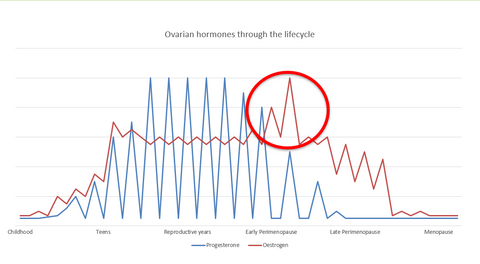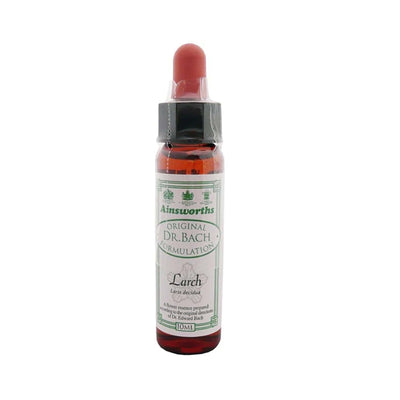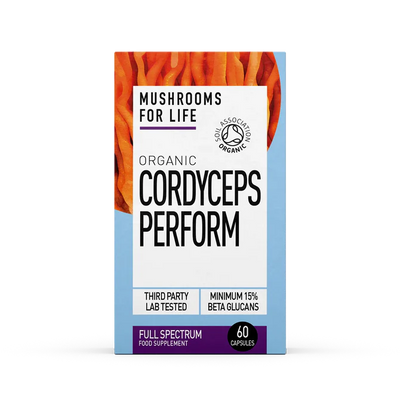What is the Menopause?
What is the Menopause?
The 'Menopause' is a hot topic of conversation at the moment. You can find articles on it on the news and all over social media. And rightly so! It is just one of many parts of womens health that has gone generations without being discussed or properly researched. Thankfully, more and more women are coming forward to talk about their experiences and what they have done to ease their symptoms. However this heightened awareness has brought with it lots of misinformation and fear mongering, with women being told by 'celebrities' online that HRT is a miracule cure for both now and their future selves with little or no evidence to support this.
There is undoubtedbly a place for HRT however it is not a one pill fits all type of medication. Every woman's menopause is as individual as they are and their management of their symptoms should be the same, individual. There are a number of things we can all do to help with this natural transition.
The menopause can be a very scary, lonely time for women and most of us are not prepared for it, so we don’t know what to expect. If this is you, you are not alone, as it is currently estimated that there are around 13 million people who are peri or post-menopausal in the UK alone.
So let's look at the basics, what actually is the menopause?
There are three main parts to the menopause;
Peri-Menopause – This is the first phase during which your hormonal balance begins to change. It can last several years before your periods actually stop for good.
Menopause – This is defined as the date that your periods have stopped for good however that is not helpful as you will not know that that was your last period. So usually, a woman is said to have reached menopause if she has not had a period for a year.
Post Menopause – Some women may still have a ‘bleed’ or a ‘show’ after 18 months therefore it may be safer to consider you are into ‘post menopause’ after 2 years without a period.
During Perimenopause the main female hormones, oestrogen and progesterone decrease marking the end of the women’s fertile time of life.
When the body realises the hormones are dropping it starts to erratically increase the amount of oestrogen that it produces causing a whole range of symptoms before it dramatically drops the levels that are produced.

Common Menopause Symptoms
- Anger
- Anxiety or panic attacks
- Bladder problems & Cystitis
- Blood pressure
- Bone health / Osteoporosis
- Brain fog / memory loss
- Breast tenderness
- Breathlessness
- Cholesterol
- Crying
- Depression
- Digestive issues / Acid Reflux / Bloating / Nausea / IBS
- Dizziness
- Dry eyes / mouth
- Fatigue / lack of energy
- Gums and teeth decline
- Hair loss / thinning / brittle
- Hair growth (facial)
- Headaches & Migraine
- Hot Flushes / night sweats
- I am fed up with partner / friends / work
- I don’t know who I am
- Itchy Skin
- Joint / muscles aches and pains
- Loss of confidence
- Loss of Libido
- Mood swings
- Palpitations
- Periods changing
- Prolapse
- Painful Sex
- Skin changes (dry or spotty)
- Sleep disturbances
- Stress
- Sugar Cravings
- Vaginal dryness, itchiness, or soreness
- Weight Gain
What can we do?
At Elixir we believe there are 5 essential components for good health and this is very true for menoapusal women. These components are;
NutritionSleep
Movement
Self care
Community
Nutrition
‘You are what you eat’ especially in Menopause as your hormonal changes puts the body under extreme stress and your nutritional needs change.
- Aim to eat the rainbow! Try and get 9 a day of different fruit/vegetables
- Consume whole grains – brown rice, buckwheat, quinoa, wheat (although not always well tolerated), oats, rye, barley.
- Fibre to support hormone metabolism – pulses, most easily digested are lentils, mung and chickpeas.
- Protein with every meal – more plant than animal
- Low calorie, high nutrition – eat as much as you like of nutritious foods
- Keep caffeine at a minimum and stop at 12pm
- Limit alcohol intake
- Good hydration - 2 litres of water/herbal tea a day
Healthy Fats
- Essential fatty acids from nuts, seeds, avocados, oily fish, eggs. These are needed to keep hair, skin and joints soft and lubricated.
- Fats to use for cooking include olive oil, seed oils, coconut oil.
Blood Sugar Balance
As we get older our insulin sensitivity often becomes impaired and this makes us more sensitive to stress. It is not just sugar that we need to avoid but foods that spike insulin also include white bread, refined foods, carbonated drinks, caffeine and alcohol.
Supporting Supplements
- Magnesium – Nervous system, sugar craving, sleep, bone and heart health
- Ashwaganda – Adaptogenic herb to support nervous system
- Turmeric – Supports detoxification, anti inflammatory, antioxidant
- Vitamin D, K and Boron – for bone health
- Vitamin C – potent antioxidant, skin, connective tissue, improve iron absorption, respiratory system & immune system. Also important for detoxification
- Milk Thistle – Helps support the liver.
- Probiotic – helps keep the gut healthy & happy
- Sage - Contains phytoestrogenic properties, mimicking the effect of oestrogen in the body which can reduce hot flushes & night sweats.
PHYTOESTROGENS – Isoflavones and lignans
- These are foods that mimic oestrogen and that are known to modulate hormone fluctuations by latching onto oestrogen receptors in the body.
- Isoflavones in soy is a particularly good source of phytoestrogens and is also high in protein (vegan), fibre, vitamins and minerals.
- It will support healthy cholesterol levels, cardiovascular health and bones.
- Soy provides calcium and iron in quantities comparable to animal products. These include tofu and tempeh and good quality soy products, pulses and green tea.
- Lignans, another type of phytoestrogen comes from flaxseeds, lentils, wholegrains, sea veg, fruit and vegetables. All of these foods will improve insulin sensitivity and keep weight in check, helping to balance blood sugar levels.
FOODS CONTAINING PHYTOESTROGENS
|
Soy products |
Grains |
Seeds and nuts |
Legumes |
|
tempeh soy beans tofu miso green tea soy drinks whole soybean soy milk
|
oats rice barley quinoa rice bran rye wheat germ |
flaxseed sesame seeds sunflower seeds pistachios almonds |
chickpeas lentils red kidney beans alfalfa mung beans split peas |
Liver & Gut Health
Love your liver!!! Our sex hormones, including estrogen, progesterone and testosterone are metabolised in the gastrointestinal tract and the liver.
Your liver has a hormone balancing role, especially for excess oestrogen (think heavy bleeds, anger & irritability. It plays an important part in nutrient storage (iron & Vitamin D) as well as energy production and fat metabolism (brain function, skin condition, weight & Cholesterol balance).
So anything we can do to support gut and liver health and improve detoxification pathways will help restore harmony. Here are a few keys you can play to help:
- Eat organic where possible - pesticides are hormone disrupters
- Take Probiotics- increase your healthy bacteria
- Reduce stress as it plays havoc on a healthy gut
- Use non- toxic cleaning and personal care products
- Drink plenty of water
Sleep
Good nights start with a good morning - Our Circadian rhythm kick starts with bright light in the morning. Our retina’s cue the brain to produce Serotonin which plays a role in mood, emotions, appetite and digestion. As the day grows dark our brain now converts the serotonin to melatonin which the brain uses to sleep.
Movement - Get moving throughout the day but not late at night.
Nutrition - Avoid caffeine, alcohol and late-night snacking. There will still be 1/2 of the amount of caffeine in your system from a cup of coffee 6 hours later.
Create a restful environment - Make the bedroom all about sleep, dark, cool and quiet. Make it a den of loveliness. Take out things that you don’t like, only have things in there that makes you feel good. Our brains create associations – make the bedroom be about sleep.
Lighting - Getting the right amount of light is so important for sleep. Too much will wake you up. Dimmer lights in the evening will trigger the serotonin conversion so avoiding bright lights is best. Lighting in bathroom can be brightest in house so think about how and when you brush your teeth.
Keep regular sleep hours / sleep schedule - Reset your body clock by going to bed and then getting up at round about the same time every day inc. weekend. The amount of sleep needed changes between person to person however between 7-9 hours is optimum.
Sleep Routine – Just like we do with children i.e.meal, bath, story and bed, create your own routine. Get ready for bed an hour before wanting to go to bed.
Write down your worries - Try keeping a notebook by the bed and jotting down any worries you have.
Confront Sleeplessness - Do not look at the clock and wake your mind monkeys up. If you have not fallen asleep after 15 minutes, get up and do something restful, reading a book or magazine for example in a low lit room. Stay off of your phone.
Meditation – try sleep apps / calm / Spotify
Movement
It is important to keep moving as it is crucial for overall health and wellbeing for several reasons;
Bone Health - Menopause can lead to a decrease in bone density, increasing the risk of osteoporosis and fractures. Weight-bearing exercises such as walking, jogging, and strength training help to maintain bone density and reduce the risk of osteoporosis.
Heart Health - Oestrogen levels decline during menopause, which can lead to an increased risk of heart disease. Regular exercise helps to lower blood pressure, improve cholesterol levels, and maintain a healthy weight, reducing the risk of heart disease and stroke.
Weight Management - Metabolism tends to slow down during and after menopause, making weight management more challenging. Exercise helps to burn calories, build lean muscle mass, and boost metabolism, making it easier to maintain a healthy weight.
Mood Regulation - Hormonal changes during menopause can lead to mood swings, irritability, and depression. Exercise has been shown to improve mood, reduce symptoms of anxiety and depression, and promote overall mental well-being.
Sleep Quality - Many menopausal women experience disruptions in sleep patterns. Regular physical activity can help improve sleep quality and reduce insomnia symptoms.
Joint Health - Menopausal women may experience joint stiffness and pain. Exercise, particularly low-impact activities like swimming and cycling, can help to improve joint flexibility and reduce discomfort.
The key to moving more is to do a little every day.
- Pick activities that you enjoy.
- Try doing them outside (serotonin release)
- Give yourself regular rewards.
- Ask friends to do it with you.
- Keep an activity diary.
- Be realistic with what you are setting out to do.
Self Care – Or personal responsibility
Self-care or as we like to call it ‘Personal Responsibility’, is particularly important for menopausal women due to the physical and emotional changes they may experience during this life transition.
Here are some reasons why self-care is important for menopausal women:
Physical Comfort - Menopausal symptoms such as hot flashes, night sweats, vaginal dryness, and joint pain can impact a woman's physical comfort and quality of life. Engaging in self-care practices such as maintaining a healthy diet, staying hydrated, getting regular exercise, and practicing good sleep hygiene can help alleviate these symptoms and improve physical well-being.
Emotional Wellbeing - Menopause can bring about changes in mood and emotional well-being due to hormonal fluctuations and the psychological impact of transitioning to a new stage of life. Engaging in self-care activities that promote self-compassion, self-reflection, and self-expression can help women navigate these emotional changes with greater ease and resilience.
Maintaining Relationships - Menopause can sometimes strain relationships due to changes in mood, libido, and communication patterns. Engaging in self-care practices can help women nurture their relationships with their partners, family members, and friends by ensuring they have the emotional resources and energy to invest in these connections.
Sense of Empowerment - Engaging in self-care activities empowers women to prioritise their own needs and well-being, fostering a sense of self-worth and agency during a time of transition. Taking time for oneself and honouring one's physical, emotional, and spiritual needs can be deeply empowering and affirming.
Stress Reduction – Our fluctuating hormones can be a huge stress on our bodies without all the added pressures of our modern lives. The more stressed we are the more our hormones become disrupted and the worse we can feel.
Ways of managing stress:
- Movement – walk, yoga, gym, gardening etc.
- Cold water dipping
- Meditation & Deep Breathing techniques
- Mindfulness
- Avoiding caffeine and alcohol
- Good sleep
- Social interaction, laughing, talking
- Relaxation and me time
- Engaging in hobbies
- Purpose (new job, re training, volunteering, finding something you really want to do!)
Community
The menopause can be a hugely lonely time for a lot of women due to a lack of open discussion and education around what happens during this transitional period. Here are a few reasons why ‘community’ is hugely important for menopausal women.
Social Support - Menopause can be a significant life transition that brings about physical and emotional changes. Having a supportive community of friends, family, or fellow menopausal women can provide a valuable source of emotional support, empathy, and understanding during this time.
Normalisation of Experience - Being part of a community of women going through similar experiences can help normalise the symptoms and challenges associated with menopause. It can reassure women that they are not alone in their experiences and provide a sense of validation and solidarity.
Information and Resources - Community networks can be a valuable source of information and resources about menopause, including tips for managing symptoms, accessing healthcare services, and learning about treatment options. Sharing experiences and knowledge within a community can help women make more informed decisions about their health and well-being.
Positive Influence on Mental Health - Social connections and a sense of belonging have been linked to better mental health outcomes. Being part of a supportive community can reduce feelings of stress, anxiety, and depression, and contribute to overall emotional well-being during menopause.
Encouragement for Healthy Lifestyle Changes - A supportive community can encourage and motivate menopausal women to adopt healthier lifestyle habits such as regular exercise, balanced nutrition, stress management, and seeking medical care when needed. Positive peer influence can inspire women to prioritize their health and well-being during this life stage.
Menopause Checklist
There are many other possible causes of the symptoms associated with the menopause, so it would be sensible to rule them out. Here are some areas that you may want to look at with your doctor.
Iron deficiency
- Tiredness
- Shortness of breath
- Dizziness/ light-headedness
- Looking pale
- Sore tongue
- Cracks in the corners of your mouth
- Heavy menstrual bleeding
- Hair Loss
Low blood pressure
- Tiredness
- Dizziness/ light-headed
- Head rush when getting up
- Cold extremities
- Palpitations
High blood pressure
- Anxiety
- Headaches
- Vision problems
Vitamin D deficiency
- Tiredness
- Pain in your muscles or joints
- Pain in your bones
- Low mood
- Frequent infections
- Heavy menstrual bleeding
Magnesium deficiency
- Muscle spasms, weakness or stiffness
- Anxiety and hyperexcitability
- Sleeplessness
- Fatigue
- Palpitations
- Nausea
- Changes in energy levels
- Changes in weight balance
- Hair loss
- Anxiety
B12 deficiency
- Sore tongue
- Mouth ulcers
- Pins and needles
- Lack of balance
- Changes to vision
Embracing the change
Menopause can be an empowering time of life as it marks a transition to a new stage where women often feel liberated from the constraints of menstruation and childbearing, allowing them to focus more on personal growth, career advancement, and self-discovery.
Around the world in other cultures, older women are highly valued for their wisdom, experience and contributions to families and communities. They hold authority and respect and often serve as decision makers and mediators.
The Japanese word for menopause is Konenki which literally translated means renewal and regeneration years and I think that is a great way to look at this time of life.
Peri and menopause symptoms do not go on forever and you can feel great again post menopause. No more bleeding, monthly blues, and period pains to go through and a lot more freedom. Many women find empowerment in embracing the physical and emotional changes, gain a deeper sense of self-confidence and lean in to finding out who they are now and what makes them happy now.
10 Golden Rules of Menopause
- Be Kind to yourself
- Eat well
- Keep active
- Get a good nights sleep
- Find your tribe
- Practise self care
- Rest and relaxation
- Water, water and more water
- Support your liver
- Breathe deeply
If you are still suffering with menopause symptoms there are herbal and homeopathic remedies that can help. Follow the link below to discover our range of supplements that can help.
https://elixirhealth.co.uk/collections/menopause
Alternatively book a free 15 minute consultation with one of the team to discover what products would be suitable for you.
Resources:
Eileen Durward & Alison Cullen - www.avogel.co.uk / health / menopause
www.drchatterjee.com - Stress management
www.marilynglenville.com - general nutritional advice for women






